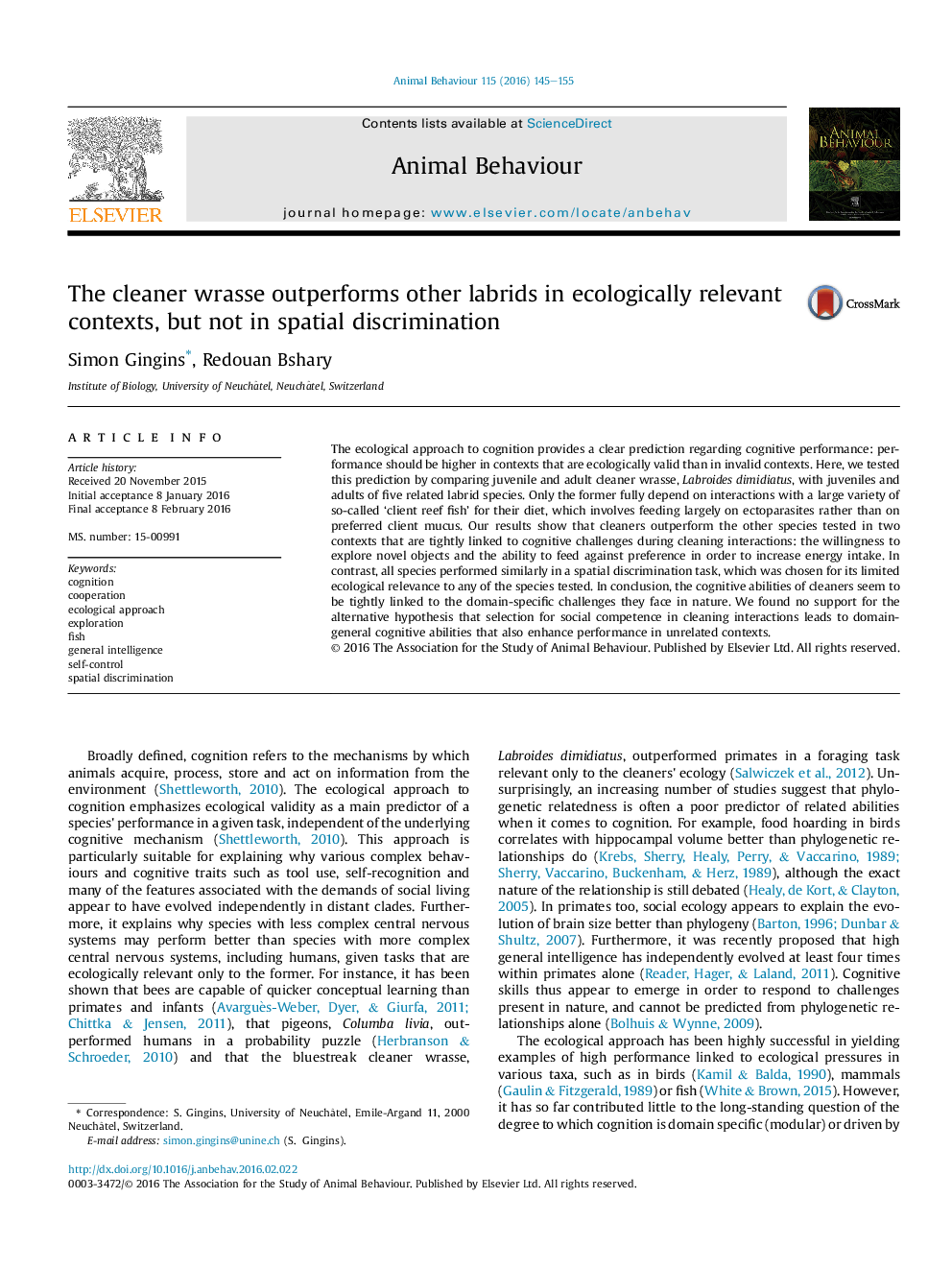| Article ID | Journal | Published Year | Pages | File Type |
|---|---|---|---|---|
| 8489104 | Animal Behaviour | 2016 | 11 Pages |
Abstract
The ecological approach to cognition provides a clear prediction regarding cognitive performance: performance should be higher in contexts that are ecologically valid than in invalid contexts. Here, we tested this prediction by comparing juvenile and adult cleaner wrasse, Labroides dimidiatus, with juveniles and adults of five related labrid species. Only the former fully depend on interactions with a large variety of so-called 'client reef fish' for their diet, which involves feeding largely on ectoparasites rather than on preferred client mucus. Our results show that cleaners outperform the other species tested in two contexts that are tightly linked to cognitive challenges during cleaning interactions: the willingness to explore novel objects and the ability to feed against preference in order to increase energy intake. In contrast, all species performed similarly in a spatial discrimination task, which was chosen for its limited ecological relevance to any of the species tested. In conclusion, the cognitive abilities of cleaners seem to be tightly linked to the domain-specific challenges they face in nature. We found no support for the alternative hypothesis that selection for social competence in cleaning interactions leads to domain-general cognitive abilities that also enhance performance in unrelated contexts.
Keywords
Related Topics
Life Sciences
Agricultural and Biological Sciences
Animal Science and Zoology
Authors
Simon Gingins, Redouan Bshary,
